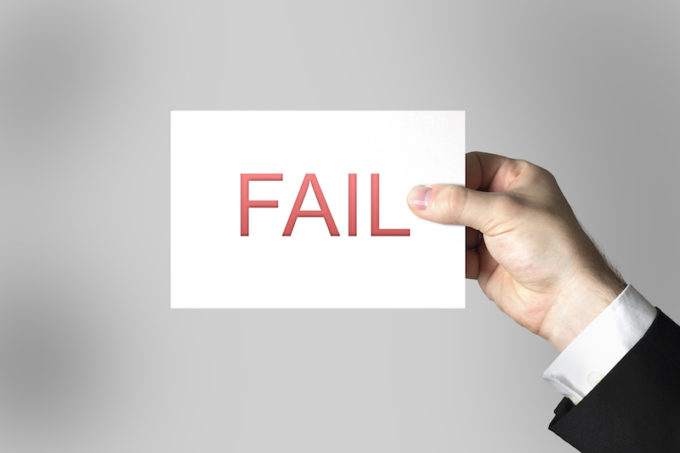What Really Happens If You Do Not Have Any Estate Planning?

There’s an old saying that if you fail to plan, you plan to fail. So, what really happens if you do not have any estate planning done?
Statutory Defaults.
One obvious benefit of estate planning is to exercise your right to decide various matters related to yourself and your estate, such as:
- Who will make decisions for your personal care if you become unable to do so?
- Who will inherit your estate upon your death?
- Who will manage the process of administering your estate?
When you do not create an estate plan, you lose the opportunity to make those decisions. In that event, Florida statutes provide ‘default’ answers for each question. Of course, the result reached by these statutes may not be the result you would have chosen. For example, you may not want your second spouse to receive half of your estate – you may prefer more or less – but the law at least provides an answer.
Guardianship.
The first question is who will make decisions for your personal care if you become unable to do so. This includes decisions about whether you will receive a particular medication or procedure, who your doctor will be, where you will live, who your friends will be, how your money will be spent, and similar questions.
If you have not created an estate plan that answers these questions, Florida law provides for a court-appointed guardian to make those decisions for you. The guardian is legally authorized to decide where you live, refuse medical care on your behalf, spend your money, and take other actions.
The court can appoint a member of your family as your guardian, or your friend, or a professional guardian you’ve never met, or the brother-in-law you don’t like. Anyone can submit a petition to the court to be appointed as your guardian and the court will consider all petitions. Obviously, the court is going to try to act in your best interest, but the court likely won’t know how you feel about your brother-in-law.
The guardian is required to report to the court annually on the use of your funds and how your care is proceeding. Further, the law requires the guardian to ask the court for permission to take some actions, like selling your home. The costs for the guardianship (and they can be considerable) are paid from your own money.
Intestacy.
The second question is who will inherit your estate upon your death. If you have not created an estate plan, that question is answered by Florida’s ‘intestate succession’ laws. These laws determine who will receive a share (or all) of your estate. As you might expect, these laws favor family members over friends or charities.
Here are some examples of how intestacy situations are answered under current law:
- If you die with a spouse but without children, your surviving spouse receives your entire estate.
- If you die without a spouse but with children, your children equally divide your estate.
- If you die with a spouse and with children, your spouse receives your entire estate – unless either you or your spouse have stepchildren, in which case your spouse receives half of your estate and your children equally divide the other half.
- If you die without a surviving spouse or children, your estate goes to your parents equally (or to either parent if the other predeceases you). If both of your parents predecease you, your estate is divided among your then-living siblings. If you are also predeceased by your siblings, your estate is divided among your then-living nieces and nephews.
Of course, the intestacy rules keep going from there, but the above few rules cover most situations. By the way, ‘intestate’ just refers to someone who died without a Will.
As you review those rules, you may realize that your wishes are different than what the law provides. You can achieve your wishes by creating an estate plan.
Probate Administration.
The third question is who will manage the process of administering your estate. Without an estate plan, your estate will be administered through the probate court. The court will appoint someone to serve as Personal Representative to manage the estate. (Most states use the term ‘executor’, which is the same as ‘Personal Representative’ in Florida.)
As with the appointment of your guardian, courts typically favor family members to serve as Personal Representative. Obvious candidates include your surviving spouse, your children, your parents, your siblings, etc. Courts also favor family members who are ‘closer’ to you, meaning your surviving spouse is preferred over your nephew.
The Personal Representative is required to get control of all of your assets, deal with creditors, pay estate expenses (such as the fee charged by the Personal Representative and the fees charged by the lawyer representing the Personal Representative), and pay whatever is left over to your heirs (determined under intestate succession rules, as discussed above). Your Personal Representative will sometimes need to ask court permission to take certain actions, like selling real property. The costs to administer your estate are paid from your estate assets.
Estate Taxes.
In addition to the foregoing issues, it bears mentioning that having an estate plan allows you to reduce or avoid estate taxes. Most estates are not subject to estate taxes because the current exemption amounts are so high (nearly $5.5 million). Nonetheless, estate taxes become a significant issue for those estates that are exposed to taxes.
Conclusion.
It is clear that estate planning is a worthwhile exercise. Having an estate plan enables you to achieve many important objectives, such as:
- Naming someone to make decisions relating to your personal care if you become unable to do so yourself
- Naming someone to handle your financial affairs if you become unable to do so yourself
- Naming your heirs to receive your estate
- Naming someone to manage the process of administering your estate
- Planning to avoid taxes


















